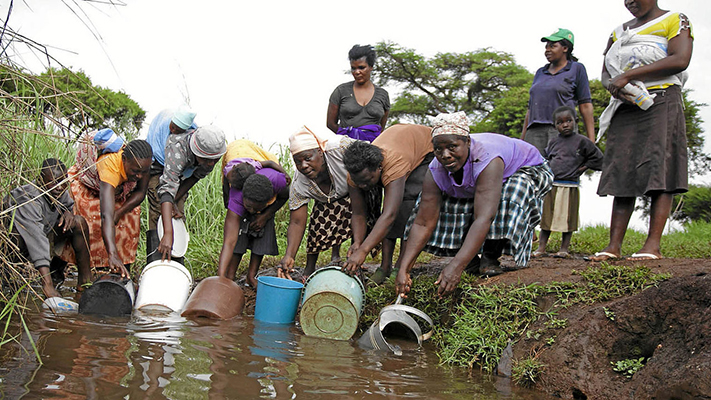Panic as cholera cases keep rising
By Farayi Machamire
There is growing panic among ordinary Zimbabweans that the rising cases of cholera may signal a potential repeat of the disastrous outbreak of 2008 which killed more than 4 000 people nationwide.

This comes as the residents of Chitungwiza are particularly at great risk of contracting the disease, as the town has run out of water — forcing authorities and humanitarian organisation Médecins Sans Frontières (MSF) International to scramble to put in place an emergency treatment centre in the area to try and mitigate the spreading of the epidemic.
MSF has also brought water bowsers into Harare’s dormitory town for use by officials screening people for the highly-infectious disease.
“The situation obtaining on the ground is sad and unpalatable. As we experience the cholera outbreak in Chitungwiza, the town is operating without its own water source, hence it is forced to entirely depend on Harare for potable water.
“The state of preparedness by the local municipality to deal with these unfortunate eventualities is very limited.
“The situation is further exacerbated by the fact that the health staff at Chitungwiza Central Hospital is on a go-slow. This exposes the population of the town to water-borne diseases,” Chitungwiza and Manyame Rural Residents Association (Camera) director Marvellous Kumalo told the Daily News yesterday.
Zengeza West Member of Parliament Simon Chidakwa said while community leaders were working around the clock to avert deaths, there was a real fear that the unavailability of running water could militate against these efforts.
“Controlling the cholera outbreak is going to be difficult if the issue of reliable water supplies is not resolved. But we are doing all we can with our Constituency Development Funds to avert a possible disaster … ultimately there is need for the upgrade of water and sewer reticulation systems to keep this dormitory town safe from water-borne diseases,” Chidakwa said.
This is the fourth time in the past 15 years that cholera — a treatable disease which causes severe vomiting and diarrhoea and is lethal if not attended to promptly — has struck Zimbabwe in a bad way.
In a cholera update yesterday, the ministry of Health confirmed that cases of the epidemic were rising in both Harare and Chitungwiza.
“Eight suspected cases and three confirmed cholera cases have been reported in Chitungwiza. The three patients were admitted at Chitungwiza Central Hospital as of 14th of April, 2018.
“Nine suspected cholera cases, four confirmed cases were recorded in Stoneridge, and another suspected case was reported from Belvedere — but it tested negative,” the ministry said.
In 2008, more than 4 000 people died when Zimbabwe was hit by the worst outbreak of cholera in the country in living memory.
The outbreak was blamed on poor public health policies, as well as on the country’s dysfunctional water and sanitation infrastructure.
At the beginning of this year, the small town of Chegutu was hit by the infectious disease which left five people dead, with Zimbabwe reported at the time to have been a victim of the contagion effects of a Zambian outbreak which forced the temporary closure of the border linking the two countries in the run-up to Christmas last year.
Cholera is an acute diarrhoeal infection caused by the ingestion of food or water contaminated with the bacterium vibrio cholerae. It is an extremely virulent disease that causes severe diarrhoea.
It remains a global threat to public health and an indicator of poverty and lack of social development.
It takes between 12 hours and 5 days for a person to show cholera symptoms after ingesting contaminated food or water.
Researchers have estimated that every year there are between 1,3 million and four million cases, and 21 000 to 143 000 deaths worldwide due to cholera.
Previous researches have shown that the Zimbabwean government’s failure to avail potable water, proper sanitation or safe alternatives has driven the public into using contaminated sources of water, as well as defacating in open spaces. DailyNews






